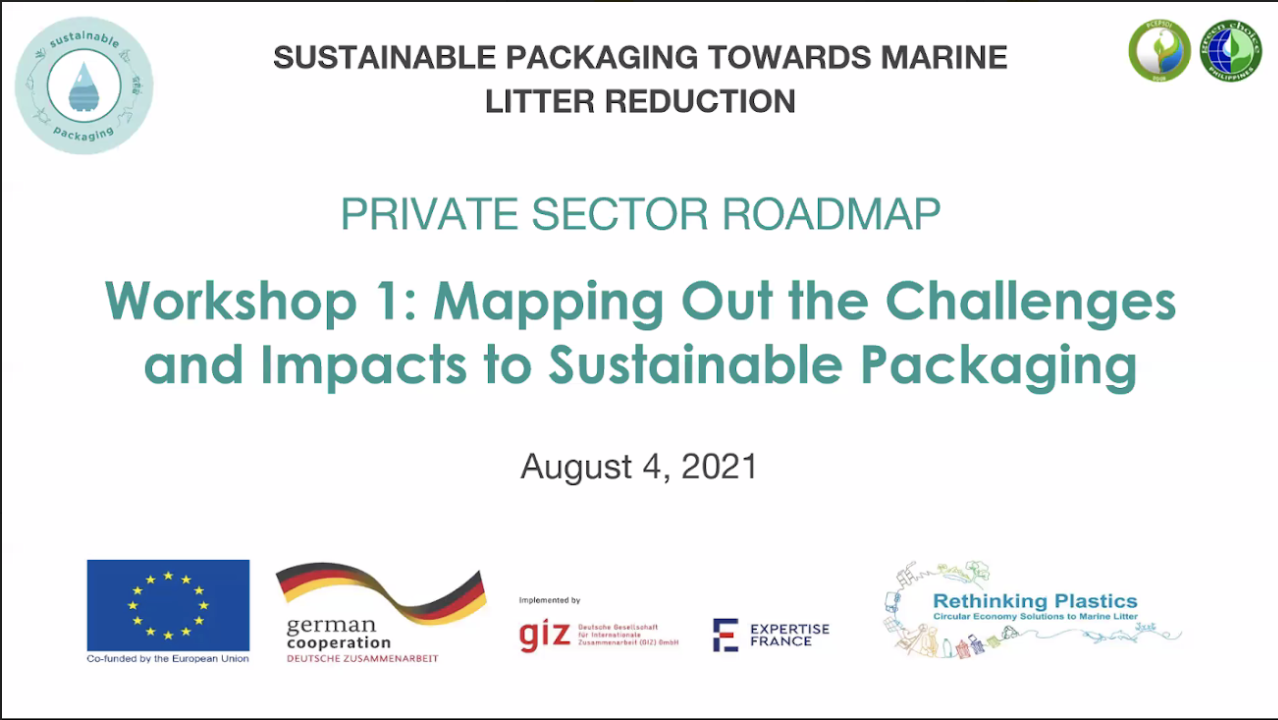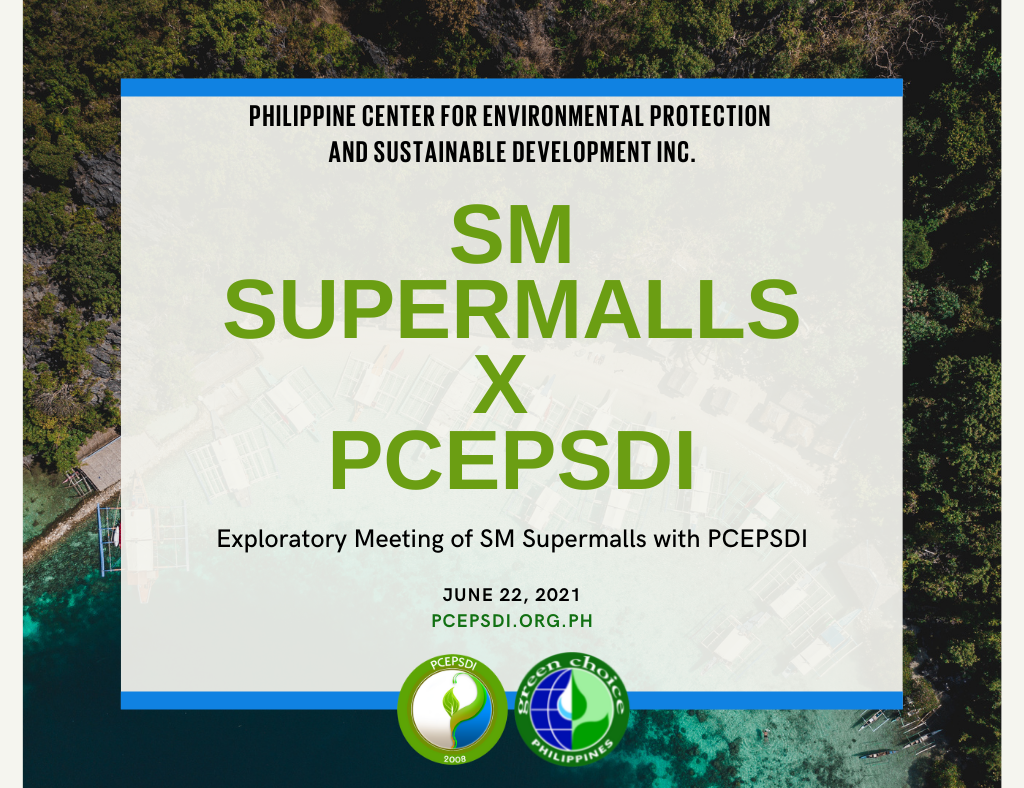Green Choice for Green Products: An Awareness Seminar on the National Ecolabelling Programme – Green Choice Philippines
The “Development of Voluntary Guidelines on Sustainable Packaging Towards Reduction of Marine Litter and Promoting Packaging from Alternative Materials Through Market Based Approach” project implemented by the Philippine Center for Environmental Protection and Sustainable Development, Inc. (PCEPSDI), also dubbed as the “Sustainable Packaging toward Marine Litter Reduction” aims to reduce marine litter by promoting packaging for reuse and from alternative materials using market-based instruments. This project is in partnership with the ‘Rethinking Plastics – Circular Economy Solutions to Marine Litter’ project of the European Union and the German Federal Ministry for Economic Cooperation and Development (BMZ). ‘Rethinking Plastics‘ is implemented by the Deutsche Gesellschaft für Internationale Zusammenarbeit (GIZ) GmbH and Expertise France. Due to the growing global concern for environmental protection, market demand for “green” products shows significant increase as producers, retailers, governments and consumers seek to expand their sustainable production and green purchasing. However, along with the increased awareness and rising demand on environmentally friendly products is the increasing concern on “greenwashing”. Thus, PCEPSDI administers the National Ecolabelling Programme – Green Choice Philippines (NELP-GCP), a voluntary, Type 1 ecolabelling program following the guidelines of ISO 14024. NELP-GCP provides criteria for environmentally sound and preferable products and services through life cycle consideration. Its mission is to guide the Filipino society in choosing which products and services being produced and distributed in the country pose the minimum risks to environmental health and welfare; while envisioning that environmentally preferable products are being produced and distributed all throughout the country. This seminar is an opportunity for businesses and other stakeholders to understand ecolabelling, a viable solution for promoting sustainable choices. As a company, SM seeks to make sustainable choices accessible to every Filipino, but this is a big challenge. Because of this, SM reaches out to many partners, one of which is PCEPSDI, to further advance sustainability. SM partners with PCEPSDI and the NELP-GCP, through its hotels, malls, and retail segments, to step up its sustainability initiatives, and helps out its suppliers in the journey towards becoming green. The seminar was started by a welcome message from Ms. Marimar “Mai” Baitculon, AVP of the SM group Sustainability office from SM Investments Corporation. Followed by the introduction of DTI’s programs on sustainable consumption and production (SCP), and its other initiatives for consumer protection by Atty. Ann Cabochan. The recently accomplished toolkit is a DTI-led project proponent in cooperation with ACCP ASEAN Secretariat, funded under the Japan-ASEAN Integration Fund (JAIF) 2.0 and managed by the Competition, Consumer Protection and Intellectual Property Rights Division (CCPID) of the ASEAN Secretariat together with DTI. Atty. Ann Cabochan emphasizes the promotion of its consumer advocacy on Sustainable Consumption and Production together with the Philippine Center for Environmental Protection and Sustainable Development INC. through its flagship programme which is the National Ecolabelling Programme – Green Choice Philippines by picking products and services that are certified green. To provide the fundamentals of ecolabelling in the Philippines, Ms. Grace Lebria presented the different types of environmental performance labelling, NELP-GCP main activities, and its milestones. Ms. Lebria also mentioned that the ISO 14020 series was developed to avoid misleading labels. There are three types of labels, namely: (1) Type I which establishes criteria based on the product/service lifecycle, applied for third-party verification; (2) Type II for self-declared environmental claims; (3) Type III for specific aspects of products using a life-cycle approach which defines a reporting format for quantifiable life cycle data. To provide the fundamentals of ecolabelling in the Philippines, Ms. Grace Lebria presented the different types of environmental performance labelling, NELP-GCP main activities, and its milestones. Ms. Lebria also mentioned that the ISO 14020 series was developed to avoid misleading labels. There are three types of labels, namely: (1) Type I which establishes criteria based on the product/service lifecycle, applied for third-party verification; (2) Type II for self-declared environmental claims; (3) Type III for specific aspects of products using a life-cycle approach which defines a reporting format for quantifiable life cycle data. The seminar was then ended by testimonials by NELP-GCP certified products.




